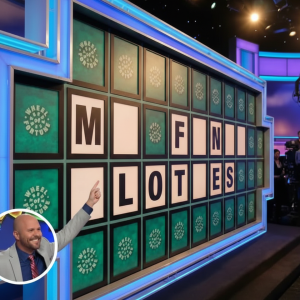The passage reflects on a particular kind of gift—the ones that don’t look meaningful at first but take on unexpected significance over time. These gifts often arrive disguised as small jokes, accidents, or last-minute choices. Rather than the meticulously planned or expensive presents that are often highlighted during the holidays, these unassuming items become the ones that people remember most vividly. The mismatched mug that turns into a beloved part of someone’s daily routine or the spontaneous gift exchange that unexpectedly hits the mark are examples of how these seemingly minor objects gain emotional weight. They become woven into personal memories and family legends because they reveal something deeper than the giver or receiver realized in the moment.
These gifts stand out because of the stories that grow around them. Unlike traditional gifts that may be admired and then forgotten, these accidental treasures linger. They resist being confined to their original context, instead becoming part of ongoing rituals or personal milestones. The simple object becomes a symbol—of connection, humor, timing, or understanding. What starts as a quirky or haphazard present evolves into an artifact that carries emotional resonance, often stronger than gifts chosen with great deliberation. This transformation is what makes them unforgettable: they gather meaning as time passes.
At the heart of this phenomenon is the idea that gifts reflect truth. They reveal something about the giver’s instinctive understanding of the recipient or about what the recipient needs at that moment in life. Sometimes the gift uncovers something quietly personal—an unnoticed preference, a hidden longing, or a reminder of identity. These truths emerge because the moment is unplanned; the spontaneity removes pressure and allows authenticity to slip through. In these exchanges, the giver and receiver experience a rare clarity about their connection.
Timing also plays a crucial role. These powerful gifts often arrive precisely when they’re needed, even if no one consciously intended it. The coincidence feels meaningful—not because it was orchestrated, but because it resonates. A humble object chosen with little thought can become the perfect anchor for someone going through change, loss, or growth. The right gift at the right moment becomes a point of emotional grounding, and the fact that it wasn’t designed that way makes it feel even more magical.
The passage emphasizes that the true magic of the holiday season—or any season of giving—is found in these unscripted exchanges. Traditional expectations around gift-giving often emphasize cost, presentation, or planning, but the most memorable gifts undermine these assumptions. When expectations crumble, authenticity surfaces. The gift that wasn’t fussed over or polished becomes a genuine expression of understanding. These moments remind us that giving is less about performance and more about connection, vulnerability, and intuition.
In the end, what lasts is not the wrapping paper or the object itself, but the story. The story becomes part of personal history: a tale of being unexpectedly seen or understood, of receiving something that felt right in a way no one planned. Such gifts endure because they touch something essential in the human experience—the desire to feel known. Their impact stretches far beyond the moment of unwrapping, creating small but lasting turning points in the stories people tell about themselves and each other.





